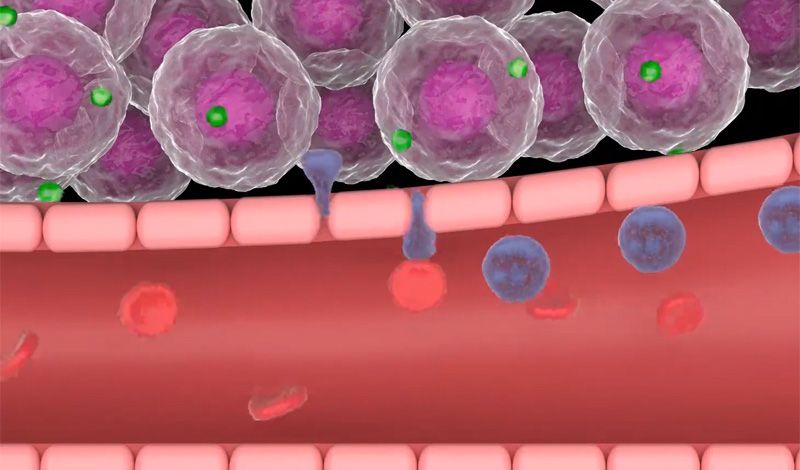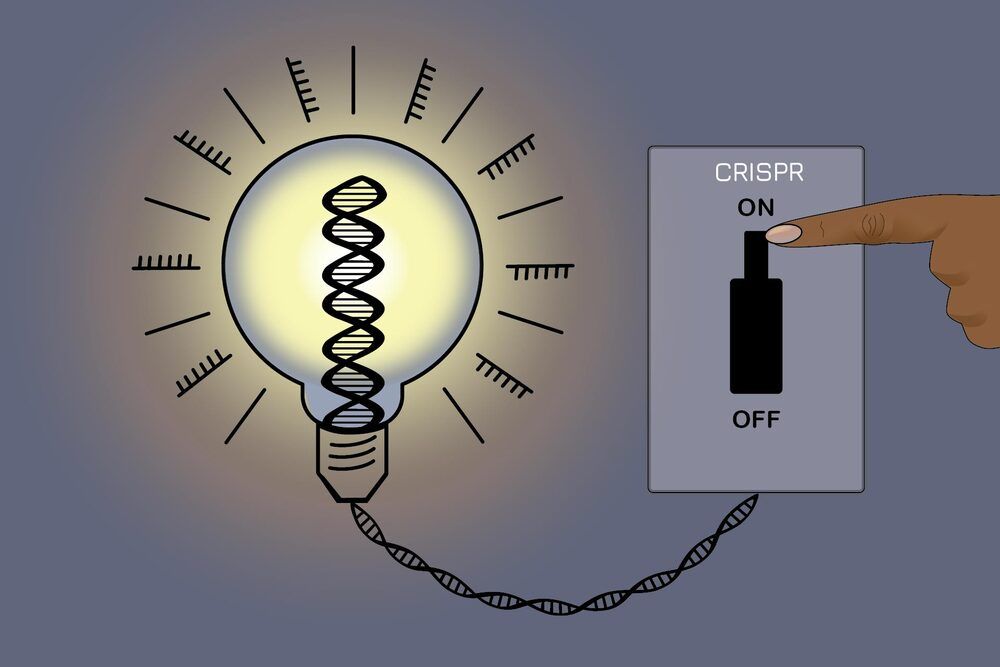Researchers in China have designed a new bio-hybrid microbot, able to cross the blood-brain barrier and deliver drugs directly to brain tumours.




The New York Times Apr 09, 2021 17:29:04 IST
Evidence is mounting that a tiny subatomic particle seems to be disobeying the known laws of physics, scientists announced Wednesday, a finding that would open a vast and tantalizing hole in our understanding of the universe. The result, physicists say, suggests that there are forms of matter and energy vital to the nature and evolution of the cosmos that are not yet known to science.
“This is our Mars rover landing moment,” said Chris Polly, a physicist at the Fermi National Accelerator Laboratory, or Fermilab, in Batavia, Illinois, who has been working toward this finding for most of his career.

Wildlife Care And Combating Emerging Zoonotic Diseases — Dr. Suzan Murray, D.V.M., D.A.C.Z.M. Smithsonian’s National Zoo and Conservation Biology Institute, Program Director, Global Health Program.
Dr. Suzan Murray, D.V.M., D.A.C.Z.M. is a board-certified zoo veterinarian at the Smithsonian Conservation Biology Institute (SCBI) and serves as both the Program Director of the Global Health Program and as SCBI’s chief wildlife veterinary medical officer.
Dr. Murray leads an interdisciplinary team engaged in worldwide efforts to address health issues in endangered wildlife and combat emerging infectious diseases of global significance, including zoonotic diseases.
Dr. Murray also acts as the Smithsonian liaison to the Foreign Animal Disease Threat and Pandemic Preparedness subcommittees of the White House’s Office of Science and Technology.
Dr. Murray’s work focuses on providing clinical care to free-ranging wildlife, pathogen detection, advanced diagnostics, training of international veterinarians and other health professionals, capacity building, and collaboration in infectious disease research at the human-wildlife-domestic animal interface. She previously served as chief veterinarian for the Smithsonian’s National Zoo and has a wealth of clinical knowledge and experience with wildlife and zoo animals both free-ranging and in human care.

New, reversible CRISPR method can control gene expression while leaving underlying DNA sequence unchanged.
Over the past decade, the CRISPR-Cas9 gene editing system has revolutionized genetic engineering, allowing scientists to make targeted changes to organisms’ DNA. While the system could potentially be useful in treating a variety of diseases, CRISPR-Cas9 editing involves cutting DNA strands, leading to permanent changes to the cell’s genetic material.
Now, in a paper published online in Cell on April 9, researchers describe a new gene editing technology called CRISPRoff that allows researchers to control gene expression with high specificity while leaving the sequence of the DNA unchanged. Designed by Whitehead Institute Member Jonathan Weissman, University of California San Francisco assistant professor Luke Gilbert, Weissman lab postdoc James Nuñez and collaborators, the method is stable enough to be inherited through hundreds of cell divisions, and is also fully reversible.

Deadline for submissions is 30 April: https://go.usa.gov/xHrE9

Although universal fault-tolerant quantum computers – with millions of physical quantum bits (or qubits) – may be a decade or two away, quantum computing research continues apace. It has been hypothesized that quantum computers will one day revolutionize information processing across a host of military and civilian applications from pharmaceuticals discovery, to advanced batteries, to machine learning, to cryptography. A key missing element in the race toward fault-tolerant quantum systems, however, is meaningful metrics to quantify how useful or transformative large quantum computers will actually be once they exist.
To provide standards against which to measure quantum computing progress and drive current research toward specific goals, DARPA announced its Quantum Benchmarking program. Its aim is to re-invent key quantum computing metrics, make those metrics testable, and estimate the required quantum and classical resources needed to reach critical performance thresholds.
“It’s really about developing quantum computing yardsticks that can accurately measure what’s important to focus on in the race toward large, fault-tolerant quantum computers,” said Joe Altepeter, program manager in DARPA’s Defense Sciences Office. “Building a useful quantum computer is really hard, and it’s important to make sure we’re using the right metrics to guide our progress towards that goal. If building a useful quantum computer is like building the first rocket to the moon, we want to make sure we’re not quantifying progress toward that goal by measuring how high our planes can fly.”

Electronic oscillators lie at the heart of virtually all microelectronic systems, generating the clock signals used in digital electronics and the precise frequencies that enable radio frequency (RF) sensors and communications. While an ideal oscillator provides a perfect signal at a single frequency, imperfections degrade the spectral purity of real-world components.
Such impairments, broadly quantified as phase noise, ultimately limit the performance of many military radars and commercial 5G systems. The issue is becoming increasingly burdensome as the airways become more congested and defense needs evolve.

Fueled by the need for faster life sciences and healthcare research, especially in the wake of the deadly COVID-19 pandemic, IBM and the 100-year-old Cleveland Clinic are partnering to bolster the Clinic’s research capabilities by integrating a wide range of IBM’s advanced technologies in quantum computing, AI and the cloud.
Access to IBM’s quantum systems has so far been primarily cloud-based, but IBM is providing the Cleveland Clinic with IBM’s first private-sector, on-premises quantum computer in the U.S. Scheduled for delivery next year, the initial IBM Quantum System One will harness between 50 to 100 qubits, according to IBM, but the goal is to stand up a more powerful, more advanced, next-generation 1000+ qubit quantum system at the Clinic as the project matures.
For the Cleveland Clinic, the 10-year partnership with IBM will add huge research capabilities and power as part of an all-new Discovery Center being created at the Clinic’s campus in Cleveland, Ohio. The Accelerator will serve as the technology foundation for the Clinic’s new Global Center for Pathogen Research & Human Health, which is being developed to drive research in areas including genomics, single-cell transcriptomics, population health, clinical applications and chemical and drug discovery, according to the Clinic.